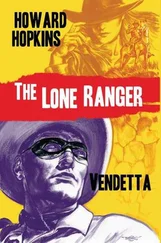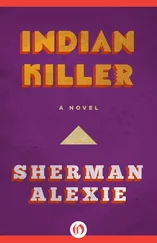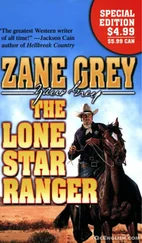Samuel understood. He picked up his severance check and headed for the door.
“Samuel,” the manager said. “As soon as things get better, you’ll be the first one I call. I guarantee that. You’ve been an outstanding employee.”
“Thank you, sir,” Samuel said as he walked out the door. Halfway down the block toward home, he stopped. He realized he had forgotten to tell the manager it was his birthday. For a moment, Samuel was convinced that would change everything. But no, Samuel knew it was over. The Third Avenue Motel’s rooms numbers one through twenty-seven would never be clean, not clean like Samuel knew how to make them. Hell, he re-created those rooms for each new guest.
Samuel Builds-the-Fire was father to Samuel Builds-the-Fire, Jr., who was father to Thomas Builds-the-Fire. They all had the gift of storytelling, could pick up the pieces of a story from the street and change the world for a few moments. When Samuel was younger, before he was even a husband and father, he would win bets by telling stories constructed by random objects. Once, he walked with friends in Riverfront Park in Spokane and they all saw a duck swoop down and pick up an abandoned hot dog. At the same time, a white mother pulled her son from the edge of the river.
“Tell us a story about all that,” his friends said. “And if it’s good, we’ll give you ten bucks.”
“Twenty,” Samuel said.
“Deal.”
“Real deal,” Samuel said and closed his eyes for a moment. “This young Indian boy, tired and hungry, steals a hot dog from a sidewalk vendor. He runs away and the vendor chases him through the park. The Indian boy drops the hot dog and jumps into the river. He cannot swim, though, and drowns quickly. The vendor sees what he has caused by his greed, changes himself into a duck, grabs the hot dog, and flies away. Meanwhile, a little white boy watches all this happen and leans over the water to see the Indian boy’s body wait at the bottom of the river. His mother refuses to believe him, though, and takes him away, kicking and screaming, into the end of the story.”
Samuel opened his eyes and his friends cheered, gave him the twenty bucks and some extra change.
“Some good old pocket money,” Samuel said and bought each of his friends a hot dog.
“What was God but this planet’s maid?” Samuel asked himself as he found himself walking to the Midway Tavern, where all the Indians drank in eight-hour shifts. Samuel hadn’t ever been fired from a job and he had never been in a bar, either. He had never drunk. All his life he had watched his brothers and sisters, most of his tribe, fall into alcoholism and surrendered dreams.
But today Samuel sat down at the bar, unsure of himself, frightened.
“Hey, partner,” the bartender said to Samuel. “Ain’t seen you in here before.”
“Yeah,” Samuel said. “Just got into town, you know?”
“Where you from?”
“A long way from here. Doubt you ever heard of it.”
“Oh, I know all about that place,” the bartender said and set a cocktail napkin in front of Samuel. “So, what you are drinking, old-timer?”
“I’m not sure. Do you have a menu?”
The bartender laughed and laughed. Embarrassed, Samuel wanted to get up and run home. But he sat still, waited for the laughter to end.
“How about I just give you a beer?” the bartender asked then, and Samuel quickly agreed.
The bartender set the beer in front of Samuel; the bartender laughed and had the urge to call the local newspaper. You got to get a photographer here. This Injun is going to take his first drink .
Samuel lifted the glass. It felt good and cold in his hand. He drank. Coughed. Set the glass down for a second. Lifted it again. Drank. Drank. Held the glass away from his mouth. Breathed. Breathed. He drank. Emptied the glass. Set it down gently on the bar.
I understand everything , Samuel thought. He knew all about how it begins; he knew he wanted to live this way now.
With each glass of beer, Samuel gained a few ounces of wisdom, courage. But after a while, he began to understand too much about fear and failure, too. At the halfway point of any drunken night, there is a moment when an Indian realizes he cannot turn back toward tradition and that he has no map to guide him toward the future.
“Shit,” Samuel said. It was quickly his favorite word.
Samuel had always thought alcohol would corrupt his stories, render them useless, flat. He knew his stories had the power to teach, to show how this life should be lived. He would often tell his children and their friends, and then his grandchildren and their friends, those stories which could make their worlds into something better. At the very least, he could tell funny stories that would make each day less painful.
“Listen,” Samuel said. “Coyote, who is the creator of all of us, was sitting on his cloud the day after he created the Indians. Now, he liked the Indians, liked what they were doing. This is good , he kept saying to himself. But he was bored. He thought and thought about what he should make next in the world. But he couldn’t think of anything so he decided to clip his toenails. He clipped his right toenails and held the clippings in his right hand. Then he clipped his left toenails and added those clippings to the ones already in his right hand. He looked around and around his cloud for somewhere to throw away his clippings. But he couldn’t find anywhere and he got mad. He started jumping up and down because he was so mad. Then he accidentally dropped his toenail clippings over the side of the cloud and they fell to the earth. The clippings burrowed into the ground like seeds and grew up to be the white man. Coyote, he looked down at his newest creation and said, Oh, shit .”
“The whites are crazy, the whites are crazy,” the children would chant and dance around Samuel in circles.
“And sometimes so are the Indians,” Samuel would whisper to himself.
After Samuel had taught his children everything he could, everything he knew, they left him alone. Just like white kids. Samuel lived on the reservation, alone, for as long as he could, without money or company. All his friends had died and all the younger people on the reservation had no time for stories. Samuel felt like the horse must have felt when Henry Ford came along.
When Samuel finally did move into Spokane, he could only find a small studio apartment. But it was more than enough. The first thing he did was to fill the four corners of the room with plaster, to make them round. He painted a black circle in the middle of the ceiling that looked like the smoke hole of a tipi. His little studio looked like the inside of a tipi. It felt like home. Something close to home, at least.
He went down to the Third Avenue Motel first thing and applied for a job as a desk clerk. But the manager said he needed a maid.
“I hear you Indian men do good housework,” the manager said.
“Well,” Samuel said. “I don’t know about other Indians but I know how to keep a clean house.”
“Good,” the manager said. “I can’t pay you much, though. Just minimum wage.”
“Good enough.”
When Samuel first started work, the Third Avenue Motel was semirespectable. By the time he was fired, it was a home for drug dealers and prostitutes.
“Why do you let those people in here?” Samuel asked the manager more than once.
“They pay their bills,” the manager always said.
Sometimes an Indian woman would work out of the motel and that always hurt Samuel more than anything he could ever imagine. In his dreams, he would see his own daughter’s face in the faces of the prostitutes.
On paydays, Samuel would give the Indian prostitutes a little money.
Читать дальше












